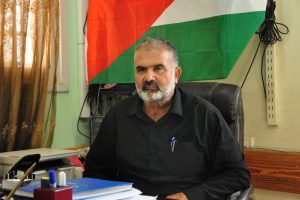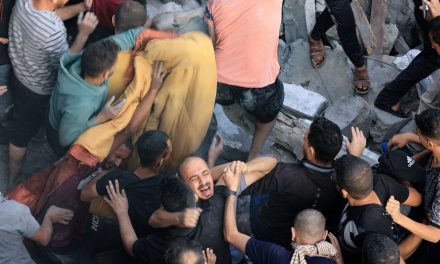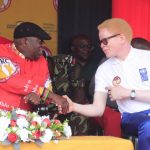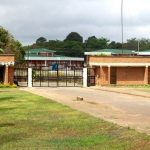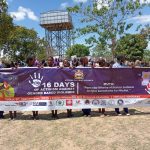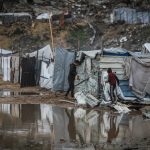
Israeli Settlers Attack Palestinians in Nablus Amid Army Siege.
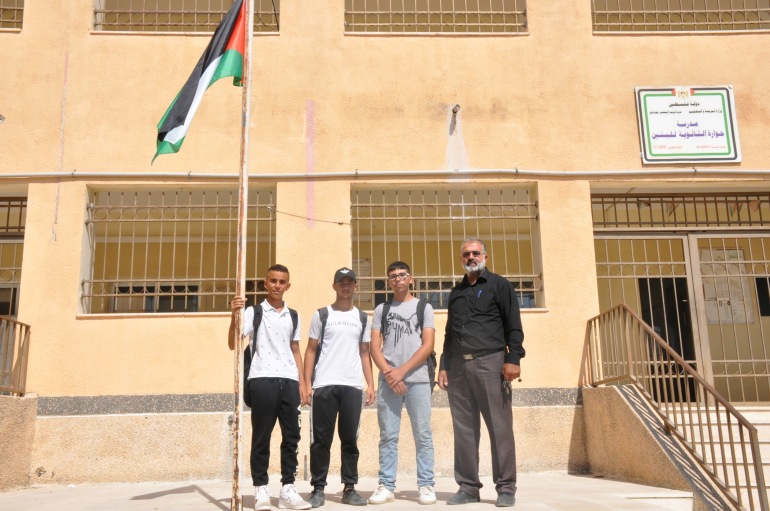
Nablus, occupied West Bank
On the morning of October 4, dozens of Israeli settlers raided the Huwwara Secondary
Boys School, south of Nablus city in the occupied West Bank, beating staff members and students and smashing
cars and class windows before retreating.
School principal Abdulhameed Shehadeh said the sense of safety and security he tried to ensure for his 350 students was shattered in the wake of the violent attack, during which one of the settlers pulled out a gun and pointed it at the teachers and students.
“I fear for the lives of my students,” the 53-year-old principal, who confronted the settlers during the attack, told Al Jazeera.
Two students, a 16 and a 17-year-old, were treated in hospital for cuts and injuries from rocks, while others suffered tear gas inhalation when the Israeli army fired tear gas bombs into the school field following the attack.
Sitting in his office at the school, with scabs from the rocks still visible on his wrist, Shehadeh said the settlers “were
throwing rocks at me, at the cars, at everything. It was raining rocks. I was hit on my arms, legs, and chest.”
GROWING TENSIONS
The assault on the high school came as part of a sharp increase in coordinated and armed settler attacks, under Israeli army protection, during the past month in the town of Huwwara and other parts of Nablus, where organized Palestinian armed resistance against Israeli occupation has intensified in recent months.
Dozens of Palestinians have been injured and their properties destroyed in settler attacks in Huwwara on September 19 and 28, as well as October 4, and for three days in a row last week.
More than 400 Palestinian properties were damaged in more than 500 attacks this year until October 10, according to United Nations monitoring. Two Palestinians were killed, including a teenager, in those attacks.
While settler violence is a daily reality for millions of Palestinians in the occupied West Bank and East Jerusalem, the recent spike has come against the backdrop of several factors: More organized Palestinian armed. operations against Israeli soldiers and settlers in Nablus and other cities, as well as nearingIsraeli elections, and the arrival of the annual olive harvest season – the last two are consistently accompanied with more violence against Palestinians.
Most recently, on October 11, an Israeli soldier was killed in a Palestinian driven by shooting operation near the settlement of Shavei Shomron, northwest of Nablus. The attack was claimed by the recently formed Lion’s Den armed group based in the Old City, and the man who carried it out remains on the run.
Since the attack, Israeli forces have imposed a continuing blockade on the area around Nablus, restricting the
movement of about 420,000 Palestinians, including patients, elderly people and children, who must wait for hours before being able to cross.
Days prior, a four-day siege was imposed on 130,000 Palestinians in the Shuafat refugee camp in occupied East Jerusalem in search of the alleged suspect in a similar shooting that led to the killing of one Israeli soldier.
Tensions on the ground had been boiling up in the occupied West Bank since last year, with increasing shootings at Israeli military checkpoints and soldiers. During the past month alone, three Israeli soldiers have been killed in separate attacks.
Meanwhile, Israel has been intensifying raids, killings and arrests of Palestinians in Jenin and Nablus since March when it launched a military operation it calls “Breaking the Wave” in an attempt to crush the phenomenon of growing armed resistance, which now appears to be spreading to Jerusalem.
Series of attacks
In a series of settler rallies between late September and October, dozens of settlers closed off entrances to Nablus
causing severe traffic jams, launched attacks on Palestinians, and demanded that the Israeli government order a military crackdown in the occupied West Bank.
Many of the attacks, which included the use of live ammunition, rock-throwing, beating and smashing with pipes and other damaging objects, have taken place under the protection or in coordination with the Israeli army.
“There is an evident great increase in the attacks, which have become more organised, and the settlers more audacious. What’s happening is very dangerous,” Ghassan Daghlas, who monitors settlers in the northern occupied
West Bank for the Palestinian Authority (PA), told Al Jazeera.
“The settlers also exploit the checkpoints. Cars are forced to stop at them. You find that the settlers suddenly come, smash the windows and pepper spray and assault the people inside,” Daghlas said.
“They are carrying out attacks with a goal– including emptying the streets from Palestinians, and carrying out attacks in order to demand from the army to enforce an iron hand on the Palestinian people,” he continued.
Wajeeh Odeh, a member of the Huwwara local council, said another factor is Israeli elections, which are set to take place in November, and which “never happen without violence against Palestinians”.
“This is known along Israel’s history, that whoever kills the most Palestinians will win in elections, because this state is criminal,” he told Al Jazeera in Huwarra.
